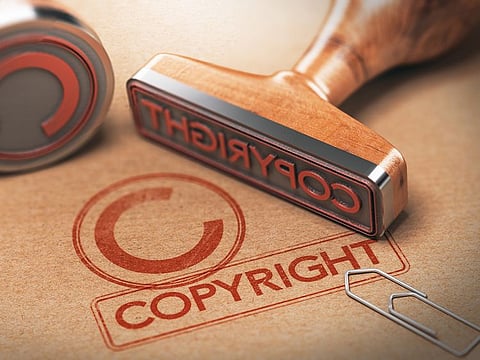After UAE's revised copyright laws, courts take zero tolerance approach on violations
Construction portal BNC wins landmark judgement in case over online data misuse

Dubai: The UAE courts are taking a zero-tolerance approach to data and IP violations, more so after recent changes in regulations that tightened up matters for offenders.
This was tested in the courts after BNC, a portal that provides info on project and construction sector performance in the UAE, took on one of its subscribers for misusing its data. “The information we provide through our subscription services is strictly for specific defined purposes as per our Master Services Agreement and cannot be republished or redistributed,’ said Avin Gidwani, CEO of BNC. “There is a common misconception we ‘sell data’ - for clarity we explain to customers that we do not in fact sell data. We ‘sell’ access to use our databases for specific business purposes."
The verdict in BNC’s favour was passed by the Dubai Court of First Instance and the date for appeal has passed without an appeal by the defendants. “We are now in the execution phase - they can't re-appeal,” said Gidwani.
We made a nominal compensation claim as our priority in this case was to obtain a verdict to stop the IP from being redistributed. We were advised that making a compensation claim would lengthen the case, as we would have to engage auditors to establish the degree of damage and the value of the data.

The BNC verdict has significance because being a test case for how IP rights are protected at a time when more data and content make it to the internet. Plus, at a time when data and content are being subscribed to through online channels, the question of who owns it and how.
Compensation
After the recent revisions in the UAE IP laws, penalties pack a punch. Copyright infringements carry potential fines of between Dh50,000-Dh100,000. “One of the significant changes under the new copyright law is the inclusion of Article 15(2) which states that ‘an author may conclude a contract in respect of future works’,” said Raka Roy, Partner at Galadari Advocates and Legal Consultants, which represented BNC.
Whereas the repealed law prohibited a blanket assignment of future works. Secondly, Article 28 gives the author economic rights in relation to third-parties.

First come to light
“We noticed our IP was compromised on January 19, 2021,” said Gidwani of BNC, which apart from operating the project database also publishes a quarterly construction market report. “We conducted a detailed technical investigation and once we had sufficient evidence we initiated legal action in March, 2021. After providing due legal notices the case was filed in May, 2021.”
Counter claim
On their part, the other party in the judgement claimed ‘outright denial of Involvement’ in the BNC data being published by a third-party, which was operating its own website and app. “Since the violating entity was being run without an independent trade license, the challenge we faced was establishing the link between the data extracted by one party and the data being republished by a supposed ‘unrelated’ party,” said Gidwani.
Once that link got established, the defendant tried another tack to disavow any wrongdoing. The claim was that the “information provided by BNC was publicly available and hence not copyrighted,” said Gidwani. “We then pointed out that if the information was publicly available the defendant would not have subscribed to our services.
“We were able to explain to the court the levels and depth of our research process - collecting, compiling, organizing, and analyzing the information that we acquire from multiple sources, through over 15,000 man-hours of research every month, in addition to the use of proprietary software and algorithms. Since we have our copyrights frequently registered the defendants' argument did not stand.”
Expanded coverage for Trademark violations
UAE's rules on trademark protection has also been expanded, and recognizes 3D, smell, hologram, and sound related trademarks. Additionally, the recognition of Geographical Indications (GI) means that now GIs can be registered as a trademark. There has also been an increase in penalties under Article 49 and 50 for forgery or counterfeiting; knowingly using a forged or counterfeit trademark; using in bad faith a trademark owned by another; possession of material for the imitation or counterfeit of a registered trademark; and importing or exporting of counterfeit products. - Galadari Advocates and Legal Consultants



